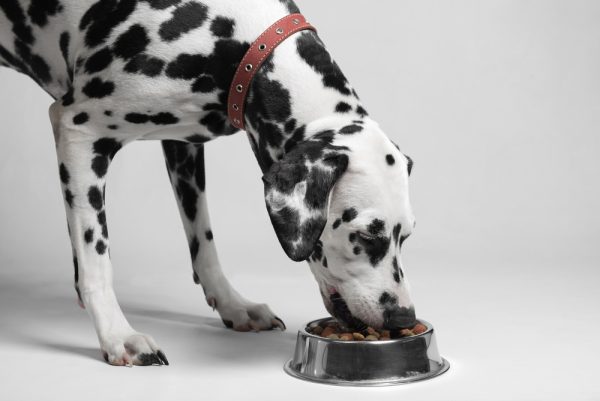In this article
View 2 More +The goofy and friendly Labrador Retriever is one of the most popular dog breeds in the world. They make great family pets because of their gentle nature and intelligence. If you’re interested in welcoming one to your family, you may wonder: Do Labradors bark a lot?
The answer is no. Generally speaking, Labradors are not known for being excessive barkers. But like all dog breeds, even Labs can develop a barking problem due to training, genetics, and other factors.
Living with a noisy Labrador can be stressful. These are big dogs with huge barks! But don’t give up on your buddy just yet. There are ways to control your Lab’s barking, and the first step is getting to the root of the behavior.

How Much Do Labradors Bark?
Not much, because Labs are a relatively quiet breed. Their ancestors were fishing dogs whose jobs were to retrieve fish that escaped from hooks and pull in fishnets.
Eventually, they became hunting dogs, and as such, they had to be quiet so they wouldn’t alert the prey. In other words, excessive barking was never a desirable trait in the breed.
Still, barking is an important part of canine communication. Dogs bark to express their emotions, alert you of danger, protect their territory, and communicate with other dogs.
So yes, Labradors will bark, but their barking shouldn’t be constant or excessive. If it is, you should take steps to put an end to it.


The 4 Possible Reasons Why Your Labrador Is Barking So Much
If your Labrador is barking excessively, it could be a sign that something isn’t quite right. Here are some of the most common reasons:
1. Boredom
Labs are high-energy dogs. Without enough physical and mental stimulation, they can become bored and frustrated. This may lead to excessive barking, chewing, digging, and other destructive behaviors.
In addition, you may be unwittingly reinforcing the behavior. Bored Labradors will bark to get your attention. It doesn’t matter what kind of attention they receive—negative or positive. If your Lab is barking and you respond in any way, they’ll keep doing it because it got what they want.
2. Fear or Stress
Scared or anxious dogs often bark in an attempt to ward off perceived threats. Undersocialized dogs, in particular, may bark at unfamiliar people and animals. If your Lab doesn’t stop barking at anything that moves, you may need to help them build their confidence.
3. Separation Anxiety
Labs that are not used to being alone can suffer from separation anxiety. This is a serious condition that can lead to excessive barking and howling. The barking usually starts when the owner is about to leave and can continue for hours after they’re gone.
4. Aging or Illness
Older Labs may bark more because of age-related cognitive decline, vision loss, or hearing issues. Dogs with mobility problems may also bark out of frustration or pain. If your Lab suddenly starts barking more than usual and nothing else has changed, take them to the vet for an examination.


The 8 Helpful Ways to Stop Your Labrador From Barking
The answer depends on the underlying cause, but here are a few tips to get you started:
1. Socialize Your Lab
Well-socialized dogs are less likely to bark excessively at strangers and animals. Get your Lab used to different people, environments, and experiences as early as possible. Make sure all interactions are positive, and reward your dog with treats and praise.
2. Provide Enough Physical Exercise
Regular exercise can help reduce boredom and prevent a lot of behavioral problems. Aim for at least two walks a day, plus plenty of playtime. If you don’t have enough time for physical activities, hire a dog walker or look into doggy daycare.
3. Add Mental Stimulation into the Mix
Labs are insanely smart. You need to challenge their brains, or they’ll find their own ways to entertain themselves (like barking). Exercise your Lab’s mind as well as their body; hide treats around the house, invest in puzzle toys, and teach them tricks and commands.
4. Ignore Unwanted Barking
As a social breed, Labs live for attention, and they’ll do anything to get it. When your Lab barks, don’t shout at them or try to physically stop the behavior. Instead, ignore them completely. Pretend they don’t exist! You can even leave the room if you need to.
Pretty soon, your Lab will realize that barking isn’t getting them anywhere, and they’ll stop. Then you can reward them for being quiet with treats and praise.

5. Address Separation Anxiety
If your Lab barks when you’re away, try to make their alone time more pleasant. Give them safe chew toys, provide plenty of food and water, and play calming music. For severe cases, you may need to give them anti-anxiety meds but only do this under vet supervision.
6. Bring Them in for a Check-Up
Dogs are experts at hiding pain and health issues, and they may come out in weird ways, like sudden uncontrollable barking. Just to be on the safe side, have them checked ASAP. If the barking is caused by medical problems, it may stop once your dog is feeling better.
7. Seek Professional Help
If nothing’s working, consider contacting a professional dog trainer or vet. They won’t “fix” the barking but instead teach you critical skills like how to interpret and modify your Lab’s behavior. This is a great way to establish communication and build a strong bond with your pup.
If you need to speak with a vet but can't get to one, head over to PangoVet. It's our online service where you can talk to a vet online and get the advice you need for your pet — all at an affordable price!

8. Never Punish or Hurt Your Lab for Barking
No matter how frustrated you’re feeling, never use physical or verbal punishment to stop your Lab from barking. This can make the problem worse and cause your pup to become fearful or aggressive. You’ll need your Lab to trust you if you want them to listen and obey; punishing them will just tear that trust apart.


Conclusion
Labs aren’t naturally big barkers, but any dog can bark too much when they’re feeling stressed, bored, or in pain. If you’re struggling with your Lab’s nuisance barking, try the tips above. It can be difficult to break old habits, so stay patient and remember to reward your pup every time they do something right.
Featured Image Credit: Gabe, Pexels




















